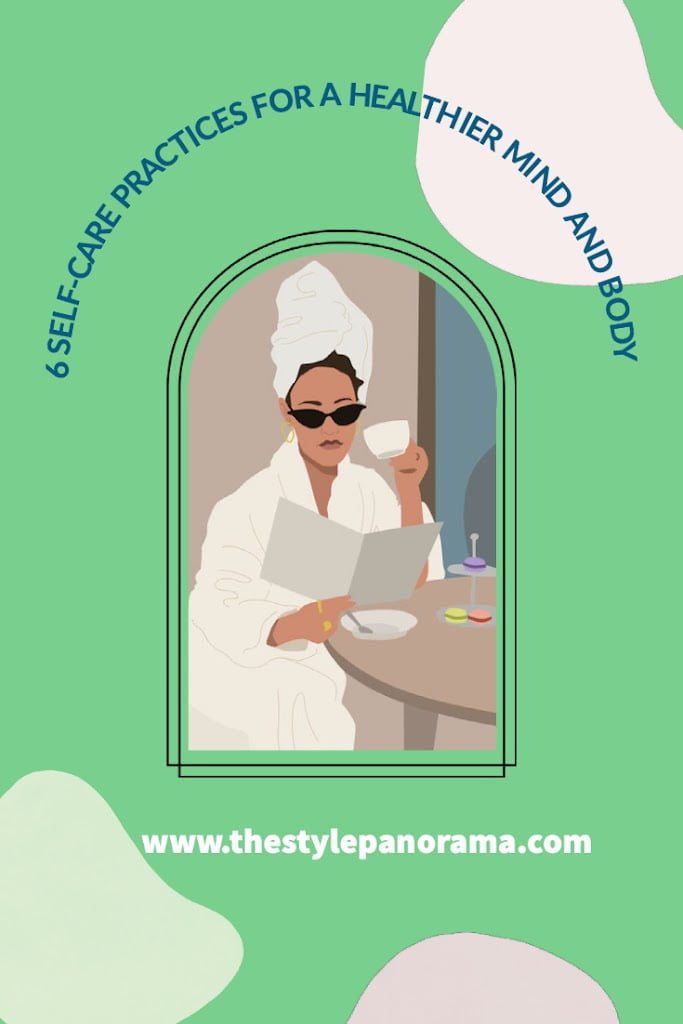Are you feeling a little tired and run down? Perhaps you need a little TLC? Well, fear not! Today we’re going to be diving into the wonderful world of self-care, and trust me, it’s a world you’re going to want to visit.
Now, self-care practices might sound like just another buzzword, but it’s so much more than that. It’s about taking the time to focus on yourself and your well-being, whether that means taking a relaxing bubble bath, getting outside for a walk in the fresh air, or simply spending a little time doing something you love.
So, what exactly is self-care? At its core, self-care refers to any intentional action taken to promote physical, mental, and emotional well-being. It is all about taking time to do things that make you feel good, both physically and mentally. It’s like giving yourself a big hug or a high-five and saying “Hey, you’re doing great, let’s keep it up!” Self-care isn’t selfish, it’s necessary for a healthy and happy life.
Self-care practices can vary from person to person, but the goal is the same: to improve overall health and wellness. Research has shown that practicing self-care can have a significant positive impact on our overall health and wellness. From reducing stress and anxiety to improving sleep quality and boosting our mood, self-care practices can help us to feel more energized, focused, and content in our daily lives. And the best part? It doesn’t have to be complicated or time-consuming. In this article, we will explore 6 simple self-care tips that anyone can incorporate into their daily routine to achieve a healthy life.
1: Daily Meditation or Mindfulness Practice
Daily meditation or mindfulness practice is a powerful self-care tool that can have a profound impact on mental health. Meditation has been shown to reduce stress, anxiety, and depression, and improve overall emotional well-being. By taking just a few minutes each day to focus on the present moment and clear the mind, individuals can cultivate a greater sense of calm and balance in their lives.
If you’re new to meditation or mindfulness, there are many resources available to help you get started. There are plenty of apps like Calm, Headspace, Insight Timer, and websites that offer guided meditations and mindfulness exercises, so you can find what works best for you. Just a few minutes of meditation or mindfulness practice each day can be extremely beneficial in relieving stress and promoting emotional well-being.
It’s important to remember that meditation and mindfulness are practices that look different for everyone. Whether you prefer to sit in silence or incorporate movement, there’s no “right” way to practice. The key is to find what feels best for you and make it a part of your daily routine. So, take some time to explore different meditation styles and resources, and see how they can improve your mental health and well-being.
2: Prioritize Sleep and Rest
Let’s talk about the importance of sleep for overall health and wellness. Getting enough quality sleep is crucial for our physical and mental well-being, yet it’s often one of the first things we sacrifice when life gets busy. Lack of sleep can lead to a whole lot of health issues, including mood disorders, decreased productivity, and even chronic diseases.
If you’re struggling with insomnia or just want to improve the quality and quantity of your sleep, there are several tips you can try. First, pay attention to your circadian rhythm and try to establish a consistent sleep schedule. This means going to bed and waking up at the same time every day, even on weekends. Creating a relaxing bedtime routine and optimizing your sleep environment can also help you fall asleep faster and stay asleep longer.
Personally, I always try to get at least eight hours of sleep each night. It makes a huge difference in how I feel and function throughout the day. I’m able to feel more energized and focused throughout the day. So, if you’re not already prioritizing sleep and rest, I encourage you to give it a try. Your body and mind will thank you!
3: Move Your Body
Moving your body is an essential aspect of self-care that offers numerous benefits for both physical and mental health. Regular physical activity has been shown to improve cardiovascular health, boost the immune system, and increase overall energy levels. Exercise also plays a crucial role in promoting mental health, reducing stress, and improving cognitive function.
But the thought of hitting the gym or running a marathon can be overwhelming for some. The good news is that incorporating movement into your daily routine doesn’t have to be complicated. Simple activities like taking a walk or doing yoga can be great ways to get your body moving and reap the benefits of physical activity These activities can help increase circulation, promote flexibility, and reduce muscle tension. Even small amounts of physical activity throughout the day can add up and have a significant impact on your overall health and well-being.
I love doing Pilates and taking walks for 30-45 minutes. Pilates is a great way to build strength and flexibility while walking is a low-impact activity that gets your blood pumping and clears your mind. Find what works for you and try to incorporate movement into your daily routine as much as possible. Whether it’s taking the stairs instead of the elevator or stretching during watching TV, every little bit counts. So get moving, friend! Your body will thank you for it.
4: Practice Gratitude
The benefits of practicing gratitude for a happier and healthier life. Research shows that cultivating a grateful mindset can improve our mood, increase resilience, and even boost our physical health.
But how do we practice gratitude? One way is to keep a gratitude journal. Each day, write down three things you’re grateful for. It could be something as simple as a delicious cup of coffee or a kind word from a friend. Focusing on the good things in our lives can shift our perspective and help us appreciate what we have.
Another way to practice gratitude is to express it to others. Take a moment to thank someone for something they’ve done for you or simply tell them how much you appreciate them. This can strengthen our relationships and spread positivity.
I like to take a moment before bed to think about three things that I’m grateful for from the day. It’s a small practice that helps me focus on the positive things in my life and appreciate all the blessings around me.
5: Disconnect from Technology
It’s time to talk about unplugging technology and how it can benefit our mental health. We all know that excessive screen time can lead to feelings of stress, anxiety, and even insomnia. But how do we disconnect in a world that’s always connected?
One way is to take a social media break. Instead of scrolling through your feed first thing in the morning or before bed, try spending that time doing something that brings you joy. Maybe it’s reading a book, going for a walk, or practicing a hobby. Whatever it is, disconnecting from social media can help reduce feelings of overwhelm and allow you to be present in the moment.
Another way to unplug is to turn off notifications. Constantly checking our phones can lead to feelings of distraction and even addiction. By turning off notifications, we can reclaim our time and focus on the things that matter most. You can also try to establish tech-free zones or times in your day. For example, you could make your bedroom a tech-free zone, or commit to taking a break from screens for an hour before bed. This can help improve the quality of your sleep and reduce stress levels.
I like to start my day by disconnecting from technology. Rather than immediately reaching for my phone to check emails or social media, I like to spend some playtime with my furry friend. I love curling up on the couch with my dog instead of scrolling through Instagram. It’s a simple habit that brings me joy and positively impacts my attitude for the rest of the day. So let’s unplug and focus on the things that bring us happiness and peace!
6:Indulge in Hobbies or Activities You Love
The practice of indulging in hobbies or activities you love is a great way to take care of your mental health and well-being. Engaging in activities that bring us joy can help reduce stress, increase positive emotions, and even improve cognitive function.
The possibilities are endless when it comes to hobbies and activities, from painting and writing to hiking and dancing. It’s all about finding what works for you and dedicating time to it regularly. This can be as simple as setting aside an hour each week to read a book or trying out a new recipe in the kitchen.
Indulging in hobbies and activities can also provide a sense of accomplishment and fulfillment, especially when we make progress or learn new skills. It’s important to remember that self-care isn’t selfish, and taking time for ourselves can actually help us be more present and engaged in other areas of our lives. So go ahead and indulge in your favorite hobby or activity, whether it’s playing an instrument, practicing yoga, or gardening.





What a helpful and inspiring post! Thanks for sharing all of these self-care tips! 🙂
https://melissakacar.com